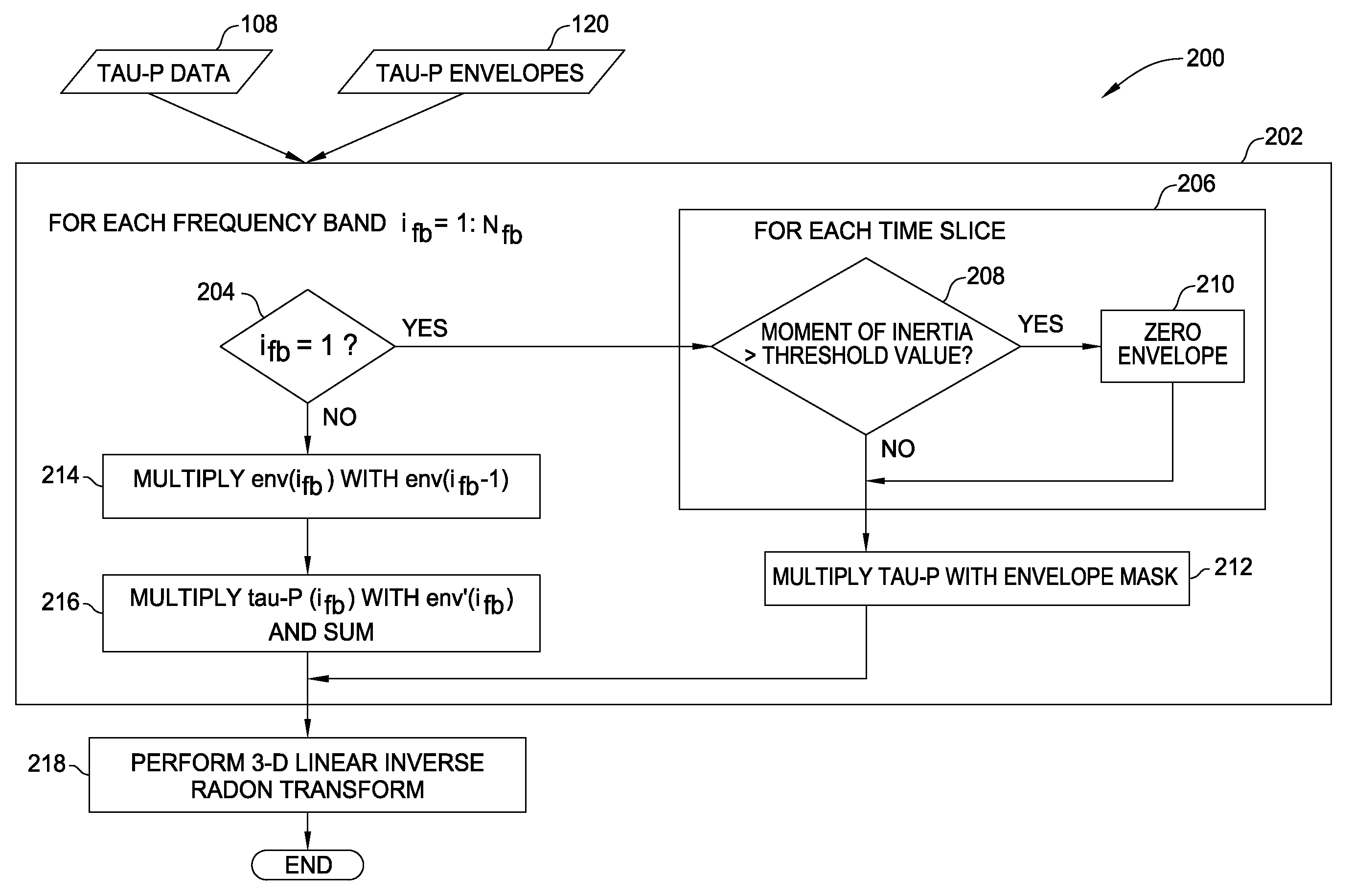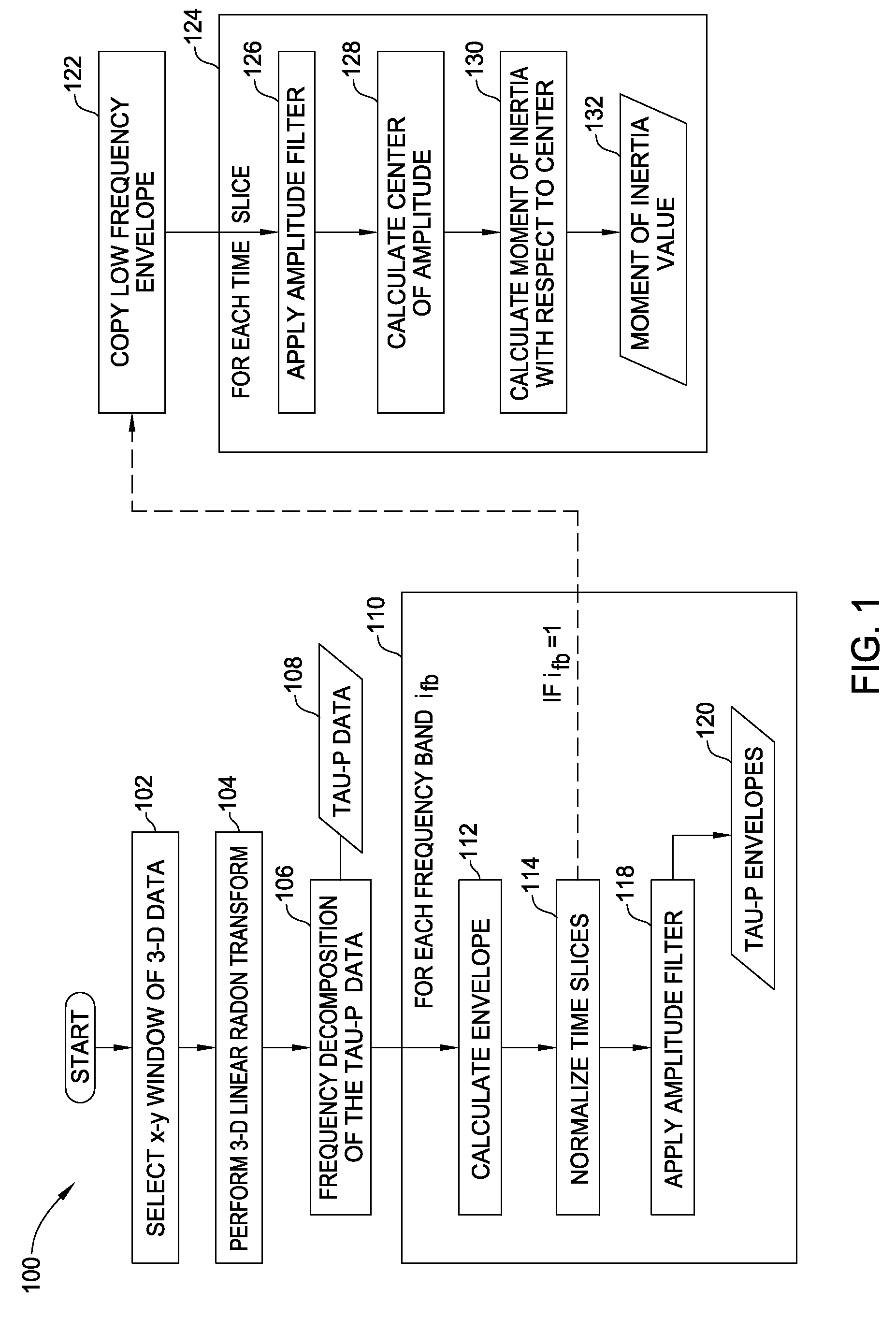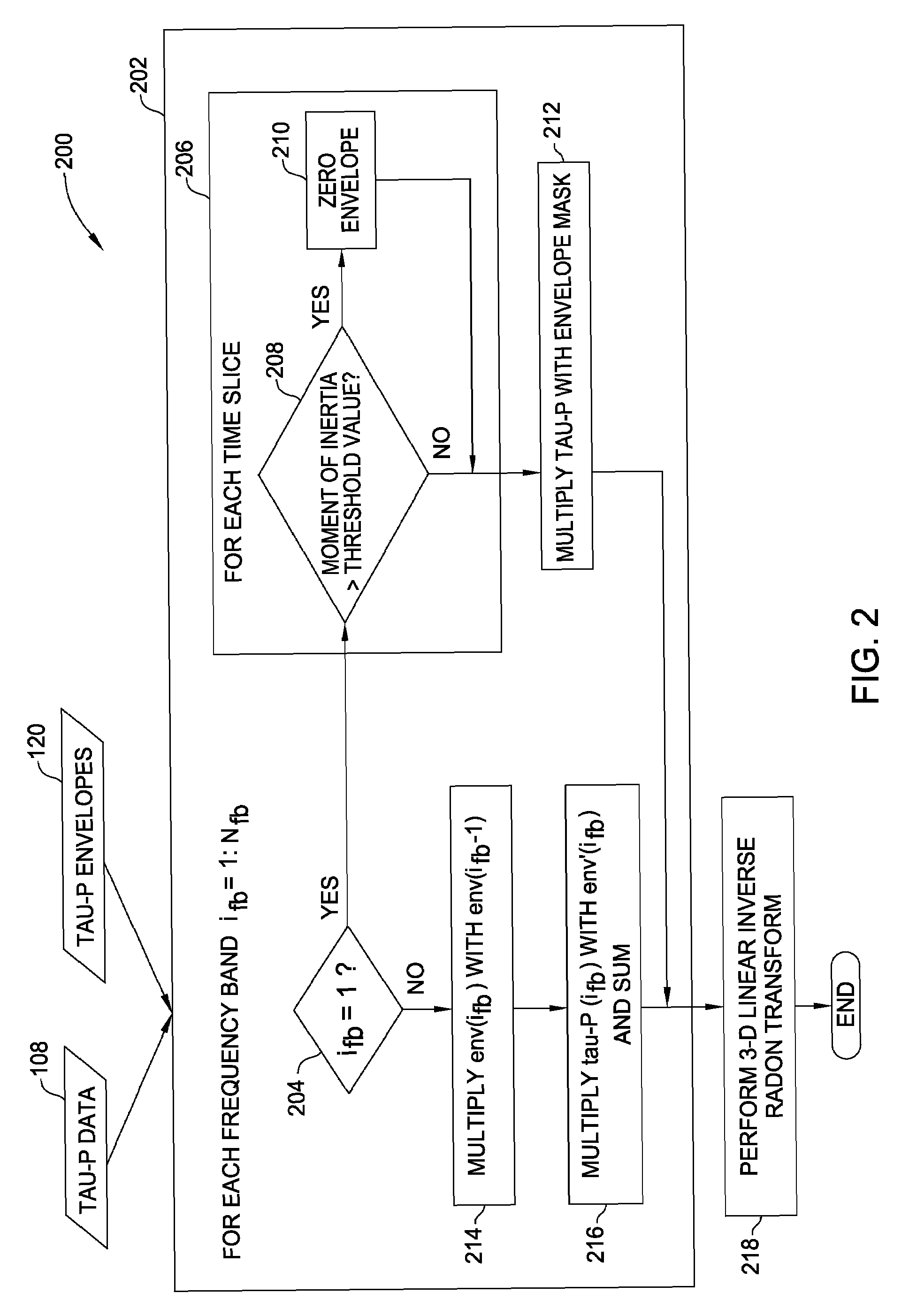3-D TAU-P interpolation
a technology of tau-p and interpolation, applied in the field of processing seismic data, can solve the problems of increasing the odds of hitting an economically recoverable reservoir, reducing the odds of wasting money and effort on a nonproductive well, and the interpretation of seismic data is much more complicated than its basic principles, so as to reduce the noise in traces
- Summary
- Abstract
- Description
- Claims
- Application Information
AI Technical Summary
Benefits of technology
Problems solved by technology
Method used
Image
Examples
Embodiment Construction
[0026]Embodiments of the present invention provide techniques for removing noise from signal traces collected during a seismic gather, particularly removing the aliased energy in the time-slowness (tau-P) domain so that aliasing noise does not lead to high noise levels in the inverse transformed data. Removal of the aliasing noise may provide for quieter seismic traces and may increase the likelihood for successful three-dimensional (3-D) tau-P interpolation and detection of seismic events.
[0027]Some or all of the steps of the methods disclosed herein may be performed on any suitable computing system, such as a personal computer, a network server, or a supercomputer, as those skilled in the art will recognize. The steps of the methods described in connection with the present disclosure may be embodied directly in hardware, in a software module executed by a processor, or in a combination of the two. A software module may reside in any form of storage medium that is known in the art....
PUM
 Login to View More
Login to View More Abstract
Description
Claims
Application Information
 Login to View More
Login to View More - R&D
- Intellectual Property
- Life Sciences
- Materials
- Tech Scout
- Unparalleled Data Quality
- Higher Quality Content
- 60% Fewer Hallucinations
Browse by: Latest US Patents, China's latest patents, Technical Efficacy Thesaurus, Application Domain, Technology Topic, Popular Technical Reports.
© 2025 PatSnap. All rights reserved.Legal|Privacy policy|Modern Slavery Act Transparency Statement|Sitemap|About US| Contact US: help@patsnap.com



